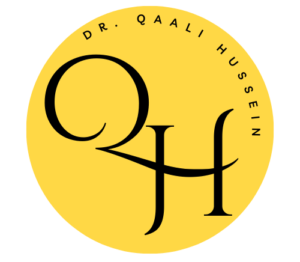
I sat in the interview in disbelief. Of all the interview preparation I’ve done, nothing could’ve prepared me for this.
A professor of medicine in pathology was interviewing me for medical school. For some reason, she fixated on my hijab. Since she had many Muslim friends, she felt she knew a lot about Islam. She insisted that my hijab was “cultural” and that there was no religious basis for it. She went on to state that her Muslim friends didn’t wear the hijab and that if I didn’t know how to practice my faith, how was I going to be a doctor?
I was too shocked to answer the question.
Unfortunately, this wasn’t the first or last time I encountered hijab discrimination in the workplace. Recently, one of my mentees applying to a gastroenterology fellowship was asked something similar in her interview. Only this time, it was why she didn’t wear the hijab.
While diversity, equity, and inclusion (DEI) have become mainstream, the workplace continues to exclude Muslim women. Bias and discrimination overshadow the ideals of equal opportunity and fair hiring. And because DEI remains superficial and performative, discussing comfortable topics like implicit bias and avoiding taboo issues such as discrimination, targeting, and retaliation, workplace cultures remain hostile to Muslim women and their values.
In this article, we’ll cover three “reality checks” to help us actually achieve career success without sacrificing our faith or family or burning ourselves out trying to fit into exclusionary workplaces. This piece is written specifically for Muslim women, especially working mothers or those interested in starting a family, who feel strongly about maintaining their faith and values.
Reality Check #1: You’re NOT in an “Inclusive” Workplace
DEI efforts have resulted in the recruitment of many diverse women into the workforce. However, the same cannot be said for their retention. Because workplace cultures have always been male-centric, women had no choice but to integrate and adopt these cultures to succeed. As a result, the pace of change to accommodate the needs of women in the workplace has been mind-numbingly slow.
Get this – in the US, women entered the workforce in increasing numbers starting in 1890, but the Equal Pay Act was passed in 1963, 73 years later (and we still have a wage gap), and the law to protect nursing mothers was passed in 2010, 120 years later 🤯
Over a hundred years to accommodate what women have been doing since the beginning of time!
The glacial pace of change in incorporating women’s needs in the workplace is the reason for the lack of inclusivity. The natural order of things at work is that it remains male and dominant-culture-centric, meaning any special needs you have because of your faith and personal values that don’t align with the culture are not easily integrated and can sometimes become obstacles to your career. For Muslim women navigating the workplace, this reality has created unique challenges to their career advancement as well as their ability to maintain their faith and family values.
Hijab Discrimination
Muslim women who wear the hijab often face discrimination and bias. According to the ACLU, 69%of women who wore hijab reported at least one incident of discrimination compared to 29% of women who did not wear hijab. This discrimination can manifest in various forms, including being passed over for promotions, receiving lower pay, or facing hostility from colleagues and clients. According to a recent study, several Muslim women who chose not to wear the hijab did so because of ‘the perceived intolerance or discrimination’ they would face if they were visibly Muslim. As a result, they felt their religious practices impacted their career choices and opportunities.
Lack of Accommodations for Prayers
Regular prayer is a fundamental practice for us as Muslims, yet many workplaces do not provide adequate accommodations for this. The Council on American-Islamic Relations (CAIR) has participated in several cases where Muslim employees were denied access to a suitable prayer space at work. This lack of accommodation compels many Muslim women to choose between fulfilling their religious obligations and meeting workplace expectations.
Family Planning and Pregnancy
Muslim women often face challenges when it comes to family planning and pregnancy in the workplace. The pressure to prioritize career over family is prevalent in many workplaces, which conflicts with the Islamic view that marriage and children are essential. Prophet Muhammad (صلى الله عليه وسلم) said, “When a man marries, he has fulfilled half of his religion, so let him fear Allah regarding the remaining half.” This is why marriage is considered half of our religion.
While children are often considered a “burden” or an obstacle to career advancement in many Western countries, Islam teaches us that being a mother is a blessing and that children are a gift from Allah. How can a gift from Allah possibly be a burden? When we believe in rizq and that Allah (سُبْحَانَهُ وَتَعَالَىٰ) will provide our sustenance, how can we possibly adopt this mentality just to achieve career success?
Misalignment of Values
When your values don’t align with your workplace environment, these challenges can become even more pronounced, leading to stress and dissatisfaction. A misaligned workplace can make maintaining your religious practices and upholding your principles difficult. The women I’ve worked with who felt compelled to give up their hijab because it would get in the way of their opportunities continued to struggle even when they did get those opportunities. The constant compromise increased their emotional strain and made them question their integrity. Despite their sacrifices, they felt like they had imposter syndrome and didn’t feel like they belonged. We cannot ignore the impact of this emotional turmoil due to the misalignment of values, especially when it can affect your relationships with your loved ones and possibly strain marriages to the point of divorce.
As Muslims who believe in deen over dunya, it doesn’t feel good to constantly have to compromise our deen just so we can pursue our career goals and take care of our families. We know this dunya is temporary, and our ultimate goal is to work for our akhira.
But how do we re-prioritize our faith and family when this is the workplace culture we must integrate into?
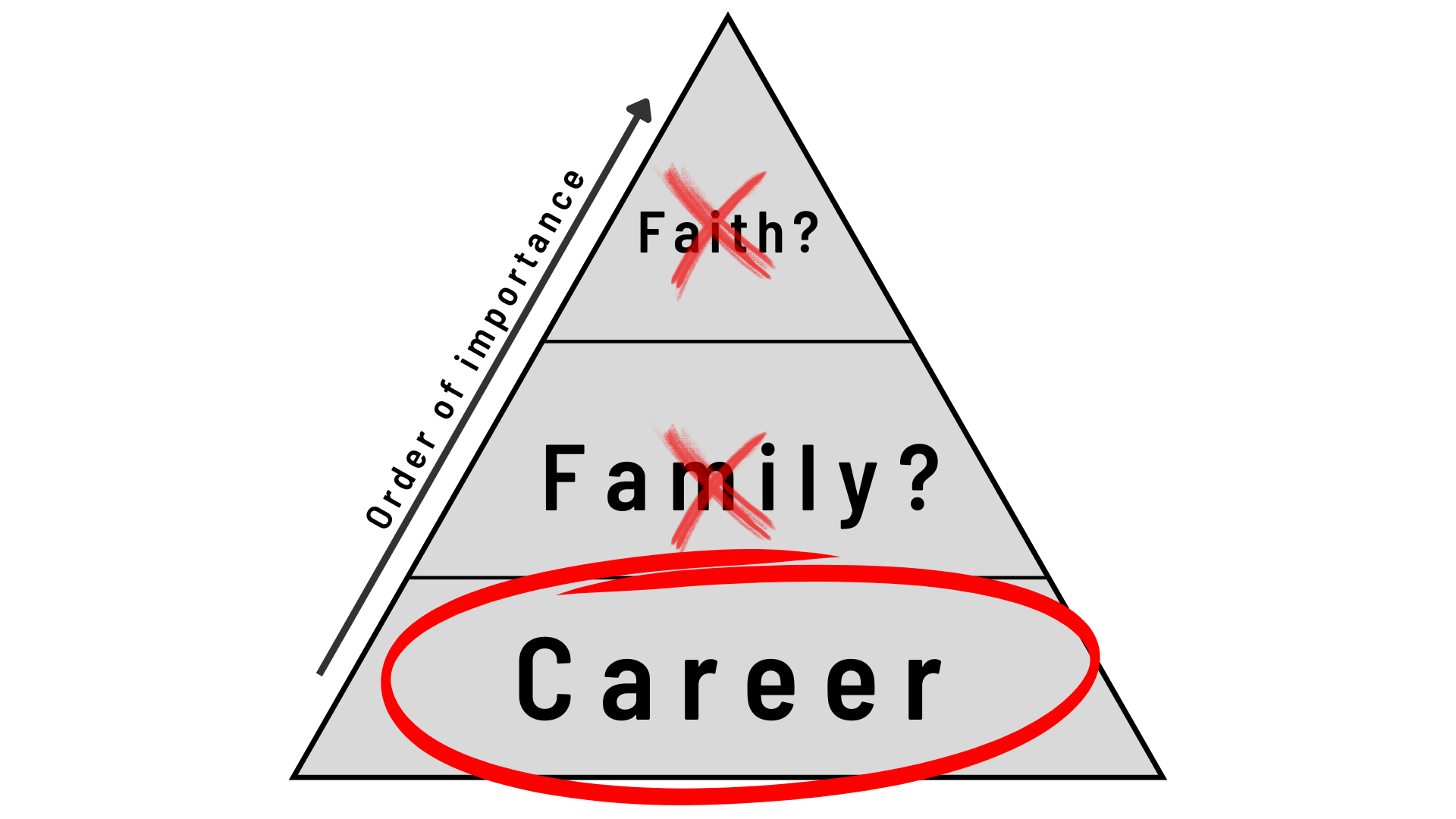
When Muslim Women Double Down on Faith and Family
So what happens when a Muslim woman stays grounded in her faith and resists integrating into workplace cultures that don’t align with hers?
The system reminds her of the natural order of things.
It would take an eye-opening experience navigating the male-dominated field of surgery as a Muslim woman to learn this lesson.
I began my journey with precautions that what I wanted to accomplish was “impossible.” Mentors warned me that I couldn’t maintain wearing the hijab in the field of surgery or be able to have a family. After overcoming years of racism, sexism, hijab discrimination, and pregnancy discrimination, I became a trauma surgeon, maintained my hijab, and had six children, Alhamdulillah. Oh, and I pursued more advanced training in surgical critical care.
But when I went into the workforce to find a job as a double-board-certified surgeon, I had my resume thrown in my face and told that I had “accomplished NOTHING over the past six years.”
What was once considered “impossible” became “nothing” in just a short SIX years!
Let’s take a minute to reflect on this and think about how “inclusive and accommodating” the workplace is for women. I can’t get over the stark contrast between this rapid depreciation of our efforts when we challenge workplace cultures and the 120 years it took for us to be able to pump breastmilk privately in the workplace!
So, after “proving” myself over and over…and over, I found myself at a complete loss. How do you prove yourself beyond accomplishing what was initially called impossible? There was no working harder. I did two of the most challenging things I’ve ever done simultaneously: surgical residency and having children (which I caution you against, by the way, unless you have a massive village and support like we were blessed with, Alhamdulillah).
So here I was, with all the training and credentialing, and getting my resumes thrown in my face or being told I wasn’t a good “fit” for the group. It was like being in a maze filled with potholes. Whenever I thought I found a way out, I either ran into a wall or fell into a pothole I never saw coming.

Nothing in my higher education and professional training prepared me for this reality.
So when Muslim women double down on faith and family, the workplace culture reminds them that they’re not welcome.
Which brings us to the first reality check we need to accept as Muslim women:
When you want to maintain your faith and values, your workplace may actively try to exclude you.
Reality Check #2: Most DEI initiatives and coaching programs don’t adequately address the unique challenges you face at the intersection of gender, race, and religion
When diversity, equity, and inclusion become exclusionary
Numerous DEI initiatives and coaching programs have been developed to address the challenges diverse women encounter in the workplace. Because resources to address these workplace obstacles and taboo topics are rare, I found it helpful to at least be in community with other women experiencing similar struggles. One of the first events I attended was a Women in Medicine conference in Chicago. I was excited to be able to learn new strategies to overcome the challenges I was facing in landing a job and negotiating a reasonable contract.
The keynote speaker presented data on disparities women continue to face in medicine. She spoke of the gap in leadership, pay, research funding, and even award nominations. She spoke of how this data can help to objectively interrogate the culture of medicine and why women remain excluded in leadership.
This was great, I thought. This speaker addressed the exclusionary nature of medicine and how women remain excluded from leadership and access to funding and awards.
When it came time for the Q&A, I was curious to hear her thoughts on early career women struggling to establish themselves in their fields and dealing with bias and discrimination in the workplace.
She didn’t answer my question directly but said it was “complicated.” When I tried to clarify and give a specific example to illustrate my point, she cut me off and moved on to the next question.
When I approached her to see if her non-answer was due to a time constraint, her one-line response was, “I don’t do race,” as she walked off.
Here we were at a Diversity, Equity, and Inclusion event for women, and the only topics of interest were those of women at the very top of the ladder. Equity in pay, research funding, and awards is great, but how do we get to that point if we can’t even land jobs? I know most DEI efforts for women focus on helping them break glass ceilings, but how about the women who are being excluded and can’t even get on the ladder to begin with? How about the women who claw onto the ladder but are constantly pushed off because they don’t “fit in?”
And the more questions I asked, the more I realized the superficial nature of DEI initiatives. I spoke with many of the presenters at this conference. Except for the only Black woman speaker, every single one of them was too uncomfortable to talk about racism and discrimination in medicine. They focus on what everyone can be comfortable with. Equal representation in editorial boards is an easier conversation than discussing solutions to physicians in positions of power who are racist, sexist, or Islamophobic.
It was frustrating to be in a conference that promised solutions to exclusionary workplaces only for them to exclude identities beyond gender. Many of the Black and Brown women attendees I made contact with felt the same. They, too, were looking for answers to the same questions. This Women in Medicine conference was the last DEI conference I attended.
Standard Career Advice That Fails Muslim Women
Many traditional career advice models employed in coaching programs for women not only fail to consider the holistic needs of Muslim women but are also blind to the power and privilege differential at play, leading to frustration and repercussions from misguided advice. Some of these programs, for instance, encourage women to speak up and advocate for themselves by using the policies and procedures in place. What they don’t do, however, is prepare women for when the workplace policies and procedures aren’t effective at protecting them.
Maliha*, an early career engineer, struggled to fit into her workplace due to a hostile supervisor. While she could handle herself with her co-workers, who were also racist and Islamophobic towards her, she didn’t know how to handle her supervisor. She sought coaching to help her navigate this challenge. She was encouraged to “lean in” and prove her competence, hoping that excellence would overcome the discrimination. When her extra work didn’t help her, she was advised to report the hostility and micro-aggressions she was experiencing to human resources (HR). She followed the workplace policies and procedures when filing the report. HR “investigated” her case.
And what was the result?
HR couldn’t find proof of any wrongdoing. Within a few months, her supervisor spearheaded a paper trail through HR about her “professionalism” and fired her shortly afterward.
These repercussions are what happens when Muslim women are “empowered” to speak up without taking the interplay of intersectionality and power dynamics into account.
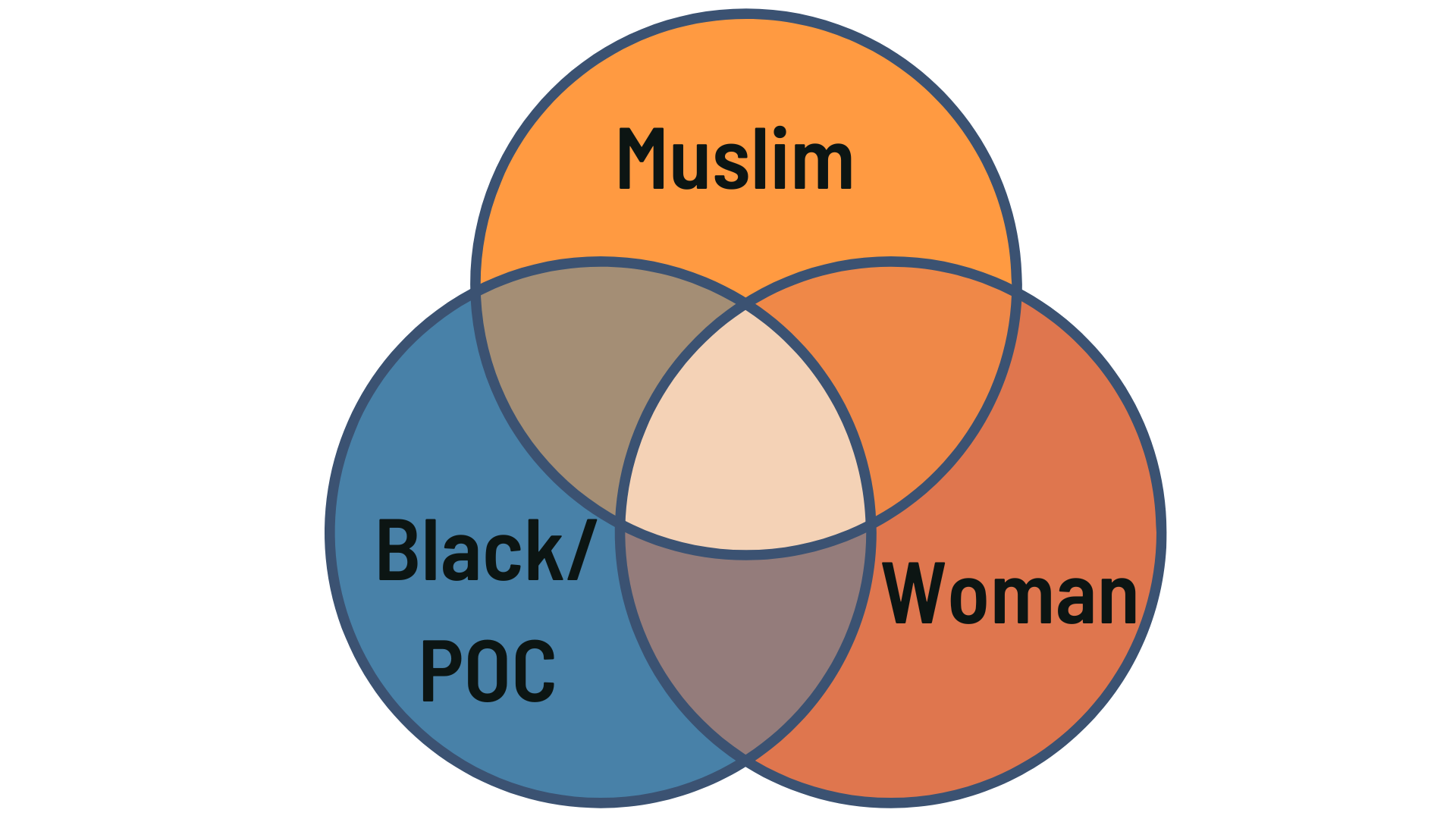
Ignoring intersectionality in career advice can have profound consequences for Muslim women, especially for Black Muslimahs. When race, gender, and religion are not considered, the unique challenges these women face are often overlooked, leading to advice that is not only ineffective but potentially harmful. For Maliha, generic career coaching failed to address the discrimination and bias she faced as a Black Muslim woman, leaving her ill-equipped to deal with the backlash. She wasn’t prepared for the attack on her professionalism, which was a non-issue before her report to HR. Career coaching didn’t prepare her for the weaponization of workplace policies and procedures by those with power and privilege. Instead, career coaching equipped her with the standard advice to “report to HR,” with the expectation that she would be protected, which is a fundamental misunderstanding of the function of HR. As a result, she didn’t know how to defend herself from this unexpected attack and was distraught at how her supervisor turned the tables on her. And because of this oversight, a service that was supposed to help her led to losing her job.
There’s nothing wrong with empowering women to speak up and take action. I’m a huge fan and believe in being defiant against harmful workplace cultures. But we have to be realistic about power dynamics in the workplace and take a strategic approach to speaking up, taking action, and, most importantly, protecting ourselves.
Safety is essential for women who experience physical or sexual harassment in the workplace. We can’t tell them to speak up without protecting them against backlash. For example, a domestic violence advocate wouldn’t say to a woman who was being abused to just defend herself without considering the potential consequences of her actions — which could mean the difference between life and death. Any advocacy for women who experience bias, discrimination, and harassment has to prioritize safety. We can’t ignore the reality that the policies and procedures in the workplace don’t always protect us. We have to understand how these systems work and how power and privilege can weaponize the system to exclude us and maintain hostile workplace cultures.
Which brings us to the second reality check we need to acknowledge as Muslim women:
As a Muslimah at the intersection of gender, race, and religion, most DEI initiatives and coaching programs are ill-equipped to adequately address the unique challenges you face because they remain blind to the power and privilege differentials at play.
Reality Check #3: A new career strategy for Muslim women is necessary.
As a Muslimah, your priorities differ from those valued in your workplace. You deserve to live authentically, prioritizing your faith and family as you pursue your career goals, not sacrificing who you are just to fit in.
And that means you need to be strategic in how you navigate your career in an environment that doesn’t align with your values, bringing us to our third reality check:
As a Muslimah who wants to prioritize faith and family while pursuing a career, you need a new career strategy.
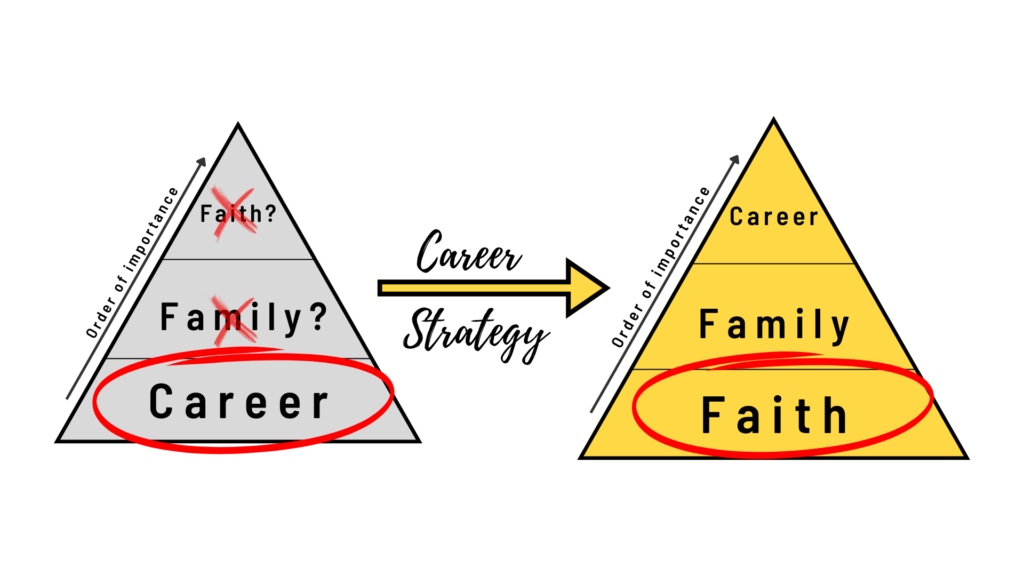
If you want to achieve your career goals without compromising your values and without burning out trying to fit into exclusionary workplace cultures, you’ll want to make sure you equip yourself with a career strategy that addresses the unique challenges you face in the workplace and effectively protects you when the system fails.
And you’ll probably want to stop using generic career advice that puts you at risk of targeting and retaliation and stop relying on DEI initiatives that remain superficial and ineffective. Hint: I explain this career strategy for Muslimahs right here on the info page for my career establishment course called Taking UP Space.
A tailor-made strategy for every stage of your life and career
A career strategy for Muslimahs must align with Islamic values and family priorities. That means having a plan that meets your needs as you transition through different career stages and how it integrates into your life. The Defiant Career Strategy is designed to help you overcome the specific challenges you face in each stage of your career and give you the tools to achieve your personal and professional goals throughout the journey.
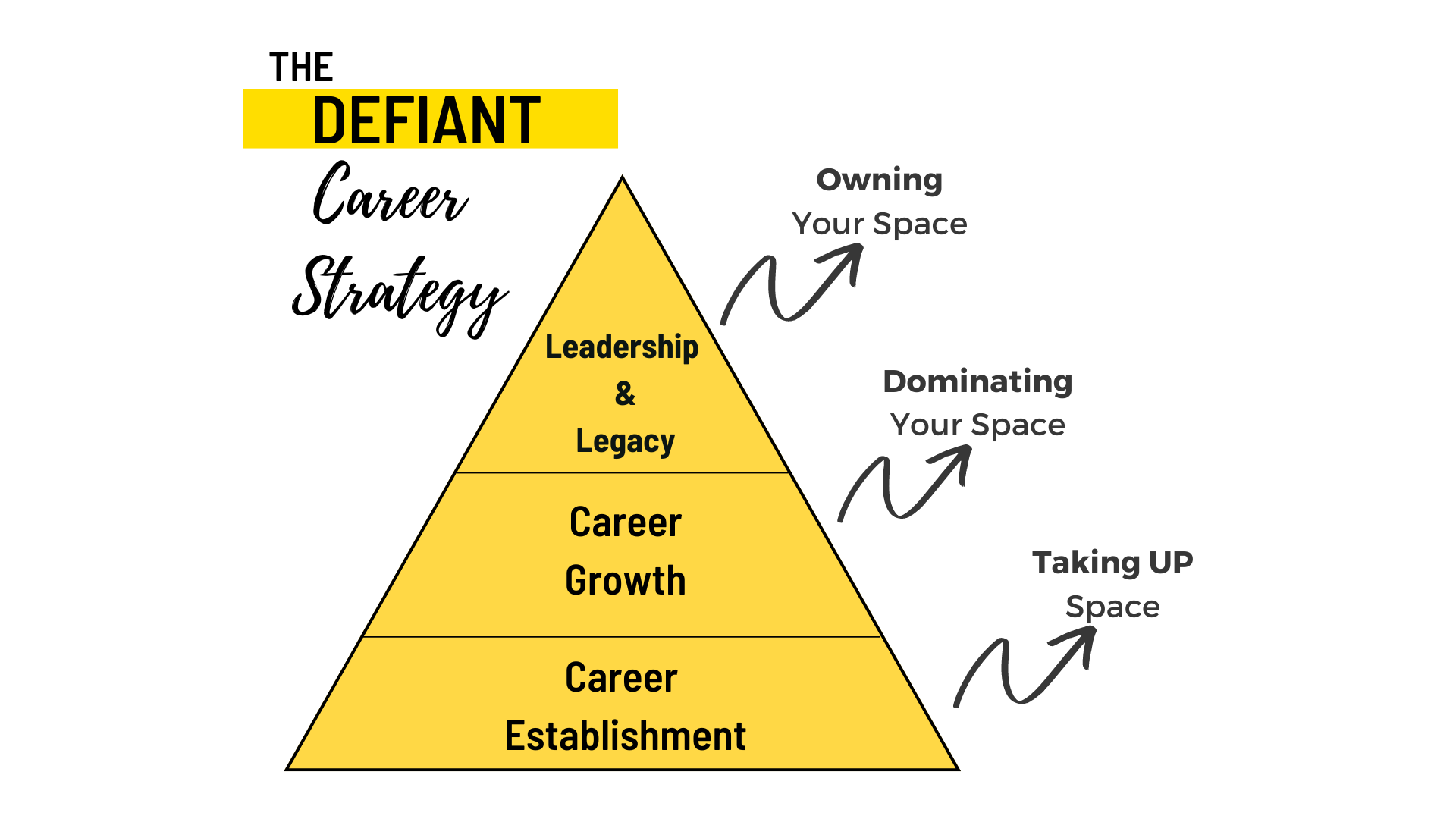
1. Early-career Muslimah: establish your career while prioritizing your faith and family planning (marriage, starting/growing a family)
2. Mid-career Muslimah: advance your career, strengthen your faith, and meet the needs of your growing family
3. Advanced-career Muslimah: establish your leadership and legacy, fulfill your faith obligations (i.e., hajj), and support your family’s life transitions
Let’s let the DEI initiatives and “empowering” coaching programs focus on finding better ways to motivate women to work harder and fit into rigid and exclusionary workplaces.You focus on solidifying your values, strategizing for the obstacles in these cultures, and having these workplaces meet your needs.
You focus on transforming your strategy so you can succeed in both deen and dunya.
For people who have traditionally been marginalized in the workplace, there is no amount of hard work or level of achievement that will overcome systems designed to exclude you. I guarantee you they can, and they will.
For Muslimahs, it’s about being strategic, not playing by the “inclusion” into harmful workplace culture rules they’ve given us, and instead using a tailor-made defiant career strategy to establish and advance our careers. . . that help us live a fulfilled and faith-based life no matter where we are in the world.
Thank you for reading, and I’d love to see you in the Taking UP Space Course.
FIND OUT MORE ABOUT THE TAKING UP SPACE COURSE HERE 🎉
*Name has been changed to maintain privacy.
